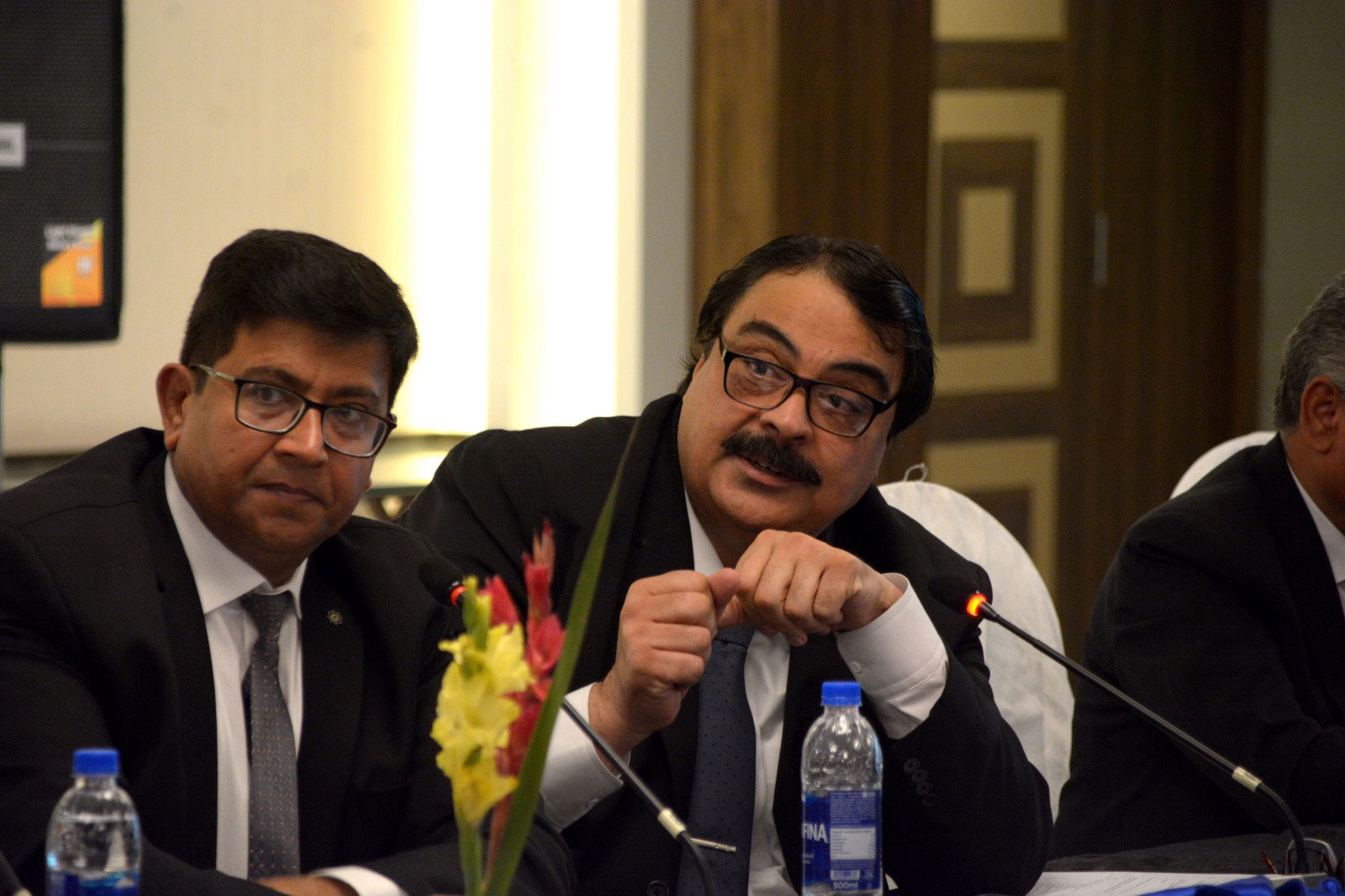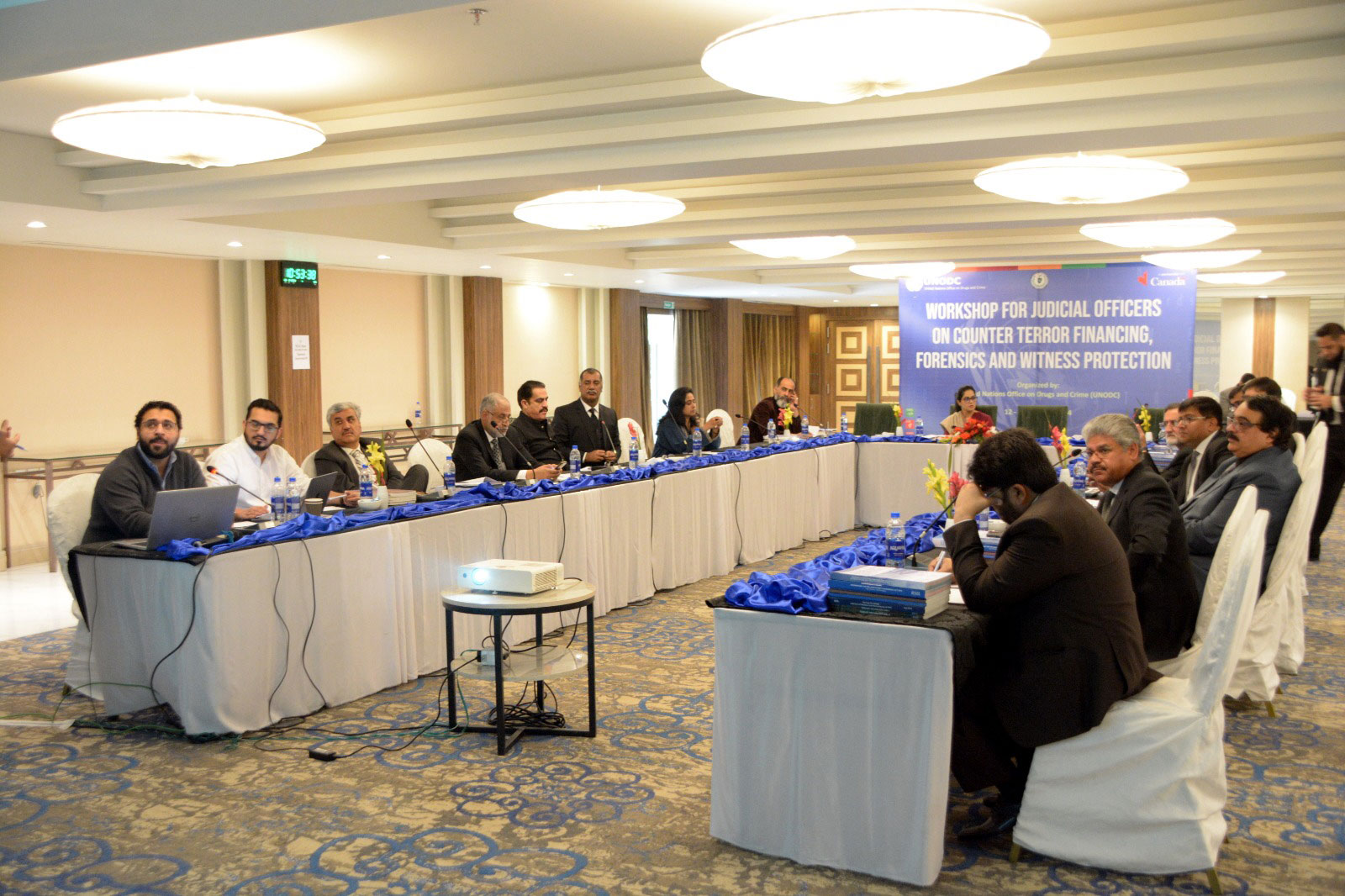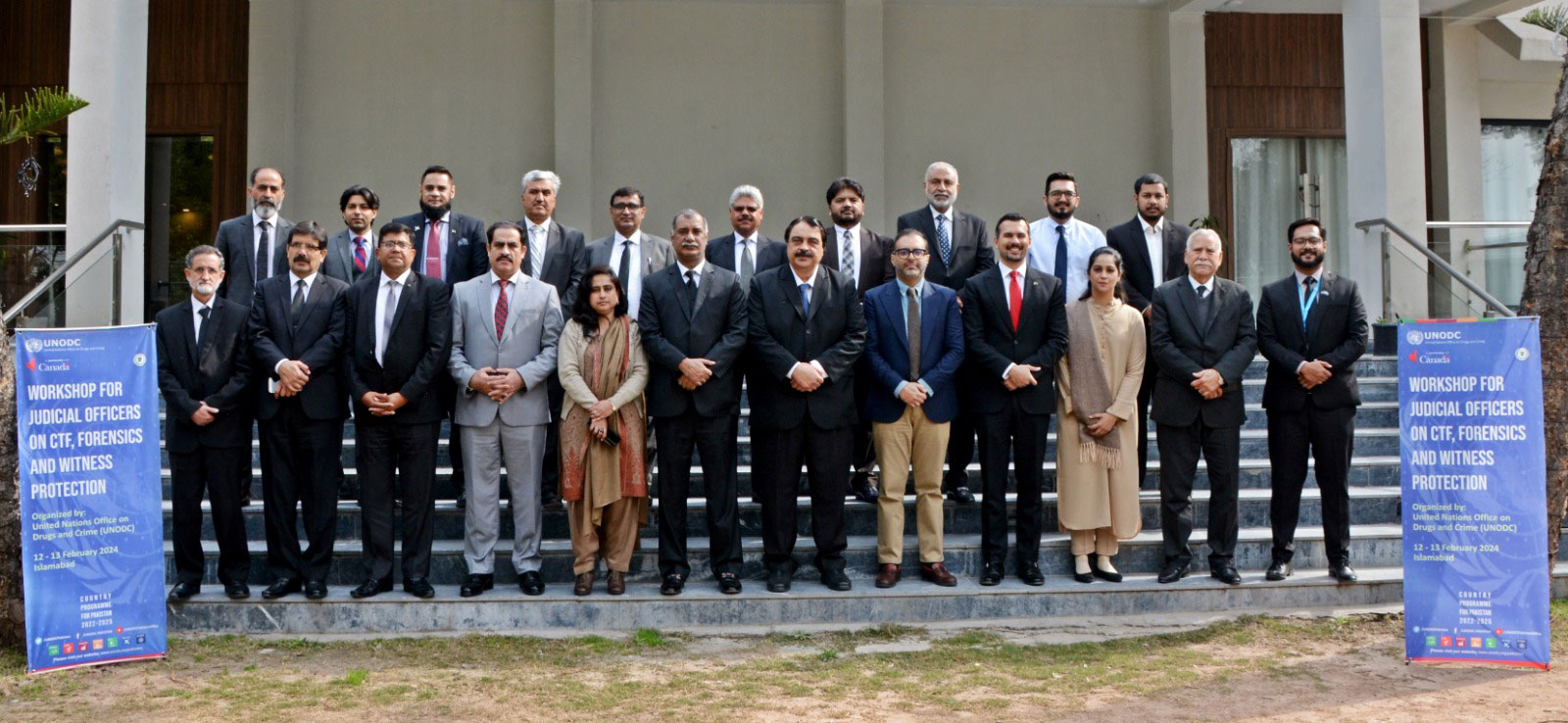Enhancing Judicial Capacity: Workshop on CTF, Forensics and Witness Protection
 14 February 2024, Islamabad – The United Nations Office on Drugs and Crime (UNODC), with generous support from Global Affairs Canada organized a two-day specialized training session for Anti-Terrorism Court (ATC) Judges in Islamabad on February 12th and 13th, 2024. The event delved into the critical intersection of counter-terrorism financing (CTF), the use of forensic evidence, and the vital importance of protecting victims and witnesses within the legal process.
14 February 2024, Islamabad – The United Nations Office on Drugs and Crime (UNODC), with generous support from Global Affairs Canada organized a two-day specialized training session for Anti-Terrorism Court (ATC) Judges in Islamabad on February 12th and 13th, 2024. The event delved into the critical intersection of counter-terrorism financing (CTF), the use of forensic evidence, and the vital importance of protecting victims and witnesses within the legal process.
 The commencement featured a welcome address, laying the groundwork for an in-depth exploration into both the international and domestic Anti-Money Laundering/ Counter-Terrorism Financing (AML/CFT) regimes. The morning sessions highlighted emerging technologies, such as cryptocurrencies, and their implications for terrorism financing, providing a contemporary lens for judicial scrutiny. A crucial segment of the training was led by Mr. Rashid Mustafa, a seasoned Ex-ATC Judge, who offered invaluable judicial insights on adjudicating terrorism financing trials. Through a series of case studies, participants engaged into the framing of charges, sentencing guidelines, and the admissibility of expert evidence.
The commencement featured a welcome address, laying the groundwork for an in-depth exploration into both the international and domestic Anti-Money Laundering/ Counter-Terrorism Financing (AML/CFT) regimes. The morning sessions highlighted emerging technologies, such as cryptocurrencies, and their implications for terrorism financing, providing a contemporary lens for judicial scrutiny. A crucial segment of the training was led by Mr. Rashid Mustafa, a seasoned Ex-ATC Judge, who offered invaluable judicial insights on adjudicating terrorism financing trials. Through a series of case studies, participants engaged into the framing of charges, sentencing guidelines, and the admissibility of expert evidence.
 These discussions not only shed light on the complexities of terrorism financing cases but also facilitated an interactive dialogue on forensic analysis, witness protection, and the broader implications for Pakistan's legal and judicial landscape. Furthermore, detailed discussions were held on sections of the AML Act, provisions of the ATA, and the interconnectedness of laws in cases. Judges actively participated in these sessions, leveraging case studies to enrich discussions. The second day accentuated enhancing the effectiveness of ATCs through brainstorming and solution-oriented approaches. Judges shared their perspectives on the challenges they encountered and the loopholes in previous judgments, which were carefully considered. Various scenarios were crafted and deliberated upon to hone judicial expertise. In essence, the workshop facilitated a comprehensive exploration of key judicial challenges in Pakistan.
These discussions not only shed light on the complexities of terrorism financing cases but also facilitated an interactive dialogue on forensic analysis, witness protection, and the broader implications for Pakistan's legal and judicial landscape. Furthermore, detailed discussions were held on sections of the AML Act, provisions of the ATA, and the interconnectedness of laws in cases. Judges actively participated in these sessions, leveraging case studies to enrich discussions. The second day accentuated enhancing the effectiveness of ATCs through brainstorming and solution-oriented approaches. Judges shared their perspectives on the challenges they encountered and the loopholes in previous judgments, which were carefully considered. Various scenarios were crafted and deliberated upon to hone judicial expertise. In essence, the workshop facilitated a comprehensive exploration of key judicial challenges in Pakistan.
 The closing ceremony underscored the collective commitment of the UNODC and judicial participants towards combating terrorism financing through fortified legal frameworks, judicial acumen, and inter-agency synergy. The event marked a significant milestone in the ongoing effort to equip the judiciary with the knowledge and tools necessary to effectively navigate the evolving landscape of terrorism financing and to ensure the protection of the rights of victims and witnesses. As the fight against terrorism evolve, initiatives like specialized training for ATC Judges underscore the critical role of collaboration, and legal proficiency in creating a safer and more just society. UNODC's dedication to this cause, with support from Global Affairs Canada, heralds a crucial advancement in the global efforts against terrorism and its financial underpinnings.
The closing ceremony underscored the collective commitment of the UNODC and judicial participants towards combating terrorism financing through fortified legal frameworks, judicial acumen, and inter-agency synergy. The event marked a significant milestone in the ongoing effort to equip the judiciary with the knowledge and tools necessary to effectively navigate the evolving landscape of terrorism financing and to ensure the protection of the rights of victims and witnesses. As the fight against terrorism evolve, initiatives like specialized training for ATC Judges underscore the critical role of collaboration, and legal proficiency in creating a safer and more just society. UNODC's dedication to this cause, with support from Global Affairs Canada, heralds a crucial advancement in the global efforts against terrorism and its financial underpinnings.
Social Media